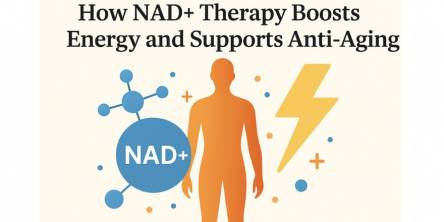7 Types of Liver Health Benefits You Can Experience

The liver is actually one of the most crucial organs in the human body, doing a variety of functions to help us stay fit and well. Keeping the liver in good health is very important to health overall. Here are seven types of liver health benefits you can experience when you take care of this essential organ.
1. Detoxification
One of the major functions of the liver is detoxification. It cleanses and removes poisons from the blood, thus preventing their accumulation in the body and thereby averting damage caused by them. This detoxification involves converting poisons into relatively harmless substances or making them water-soluble so they can be removed from the body in urine or bile.
A healthy liver thus means the body has an effective ability to detoxify and protect itself from the myriad toxins present in food, water, and the environment with the help of a liver health formula. The outcome of this is diminished possibilities of suffering adverse effects that emanate from pollutants, chemicals, and other forms of toxic elements.
An efficiently detoxifying liver can help prevent headaches, lethargy, and other conditions associated with toxin accumulation.
2. Better Metabolism
The liver plays a very significant role in metabolism by metabolizing the three major classes of simple macromolecules: carbohydrates, proteins, and fats. The liver typically metabolizes most of the consumed carbohydrate taken as sugar into glucose.
Then it either puts that glucose to work or stores it in the liver and muscles as glycogen for later use. Besides metabolizing the already stored glycogen, the liver breaks down fats into energy. It also metabolizes other amino acids from proteins coming from various sources, which contribute to building and repairing tissues.
A well-functioning liver digests the breakdown of these nutrients better so that your body derives every drop of energy for it to work up to its capability. Good metabolism can be garnered by way of good energy levels, weight management, and overall health. It keeps away metabolic disorders, such as fatty liver diseases, obesity, and insulin resistance, among many others.
3. Improved Digestion
The liver produces bile, a substance that becomes very important for the digestion and absorption of fats. Usually, bile emulsifies fats in droplets so that enzymes can break them down easily. This becomes most vital in absorbing vitamins A, D, E, and K.
A good liver means maximized production and secretion of the bile, hence increasing digestion. This, in turn, helps prevent digestive issues such as indigestion, bloating, and constipation, ensuring comfortable and smooth digestion.
It's while functioning that the well-functioning liver ensures more is absorbed and utilized in the body to ensure nutritional health.
4. Immune Boosting
A healthy liver plays a huge role in ensuring that one has a robust immune system. Blood is filtered free of bacteria and other pathogens to prevent infections and diseases. This is because it also harbors a form of immune cells called Kupffer cells that destroy foreign microorganisms and old blood cells.
It also produces proteins necessary for the immune system of the body, such as albumin and globulins. These proteins keep all of your defenses in top shape so that you can successfully fight off attacks of infection and be healthy. With a healthy liver, you optimize your immune system's response and recovery from illness.
5. Maintain Blood Sugar Levels
The liver controls the levels of blood sugar by storing it in the form of glycogen and releasing it at intervals, especially during fasting or between meals. It is crucial for the process to occur in both the body and brain due to their requirement for a constant supply of energy.
This makes the process flow smoothly when the liver is in good health. The ups and downs of sugar levels in the blood are avoided. This becomes of first importance to those who are suffering from diabetes or who are on the verge of becoming a victim of this disease.
A healthy liver tries to avoid conditions like hyperglycemia, high blood sugar level, and hypoglycemia, low blood sugar level. A good balance in the blood sugar level reduces various risks of complications.
6. Hormone Regulation
The liver participates in metabolizing and regulating various hormones in the body. It breaks down some of them, such as estrogen, testosterone, and insulin, to keep their levels in the body in check. Maintaining hormone balance with the help of a healthy liver may include almost everything, from mood and energy levels to reproductive health.
Proper hormone regulation is therefore very essential for general well-being and prevention from hormonal imbalances. This can consequently lead to a gamut of other health complications: mood swings, weight increase, menstrual disorders, and problems related to the reproductive system.
By supporting liver health, you also support the body's natural hormone regulation processes, promoting physical and emotional stability.
7. Reduced Risk of Liver Diseases
Proper care of the liver may reduce the risk of development of various liver diseases, including fatty liver disease, hepatitis, and cirrhosis. Fatty liver disease results from fat accumulation in the organ, which consequently leads to inflammation and organ damage.
Hepatitis refers to the inflammation of the liver, usually caused by either viral infections or excessive alcohol consumption. Cirrhosis is an advanced scarring of the organ that is a long-term result from damage to the organ.
Practicing a good lifestyle through a balanced diet, proper exercise, and avoiding excessive intake of liquor defends your liver from damage and ensures its continued function. Lowering the risk for liver diseases also means reduced chances of developing the complications of liver disease, which include liver cancer, liver failure, and metabolic disorders.
How to Keep Your Liver Healthy
Here are some tips you might want to add to your daily routine so that you could achieve all of the many benefits that come with having a healthy liver:
- Healthy Nutrition: Focus on fruits, vegetables, whole grains, lean proteins, and healthy fats. Try to avoid too much sugar, bad fats, and processed foods.
- Keep Well Hydrated: Drink a lot of water to help your liver flush out the toxins and sustain its functionality.
- Exercise Regularly: Physical activity improves the health of the liver and reduces fatty liver disease. At least 150 minutes of moderate-intensity exercise per week should be done.
- Limit Alcohol Intake: Drinks can cause liver damage and even diseases when consumed excessively. If you drink, then do so in moderation.
- Avoid Toxins: Reduce your exposure to unhealthy chemicals in cleaning products, pesticides, and personal care products.
- Use Medications Safely: Avoid taking more than the recommended amount of prescription drugs. Never take more than the recommended dose, especially acetaminophen because it can damage the liver if taken in large quantities.
- Take Regular Check-Ups: Regular checkups with your doctor will help you identify problems with your liver at an early stage and confirm whether your liver is working well.
Conclusion
The liver is an incredible organ with so many life-sustaining actions to keep our bodies fit and healthy. Keeping your liver in top shape through good nutrition, exercise, and keeping clear of bad stuff benefits you a lot in detoxification, metabolism, immune function, and much more.
Maintaining good health of the liver is much like investing in one's general well-being and longevity. The functioning of the liver absolutely bears upon the quality of life; therefore, taking care of it becomes a priority if one aims to live long.
FAQs
How do I take care of my liver health naturally?
Eat a balanced diet rich in fruits, vegetables, and whole grains. Drink enough water, exercise well, and avoid excessive alcohol consumption.
What are the signs of liver problems?
Such signs and symptoms include jaundice, weariness, dark urine, light-colored feces, abdominal pain, swelling in the abdomen, or loss of weight when not up to some dietary habit.
Can Supplements Really Help Keep Your Liver Healthy?
Milk thistle, turmeric, and dandelion root are only a few of the herbal extracts that may prove useful in supporting hepatic health.
Similar Articles
Discover the benefits, challenges, and future of locum medical jobs. Learn how locum recruitment agencies support flexible, diverse career opportunities for healthcare professionals seeking dynamic work environments.
Burnout in the healthcare environment is a significant and growing crisis.
NAD+ therapy restores cellular energy, enhances metabolism, and promotes anti-aging by supporting DNA repair and improved overall vitality.
Seasonal Affective Disorder (SAD) is a type of depression linked to seasonal changes, most commonly seen during the late fall and winter months when sunlight exposure decreases
Enhance sleep comfort and support with a mattress topper queen. Discover how the right topper improves pressure relief, temperature control, and rest.
If your mind refuses to be quiet the moment your head touches the pillow, welcome to the club. Overthinking at night has silently become nearly synonymous with modern forms of insomnia.
Discover how longevity clinics use key biomarkers to assess ageing, improve health, and guide personalized wellness strategies for a longer, healthier life.
Halitosis, sometimes known as foul breath, affects millions of individuals worldwide and can cause humiliation, influencing everyday interactions and confidence.
In the modern world, maintaining good health often feels like a constant challenge. Between busy lifestyles, sedentary habits, and lack of motivation, many people find it difficult to stay consistent with exercise, diet, or wellness practices.









